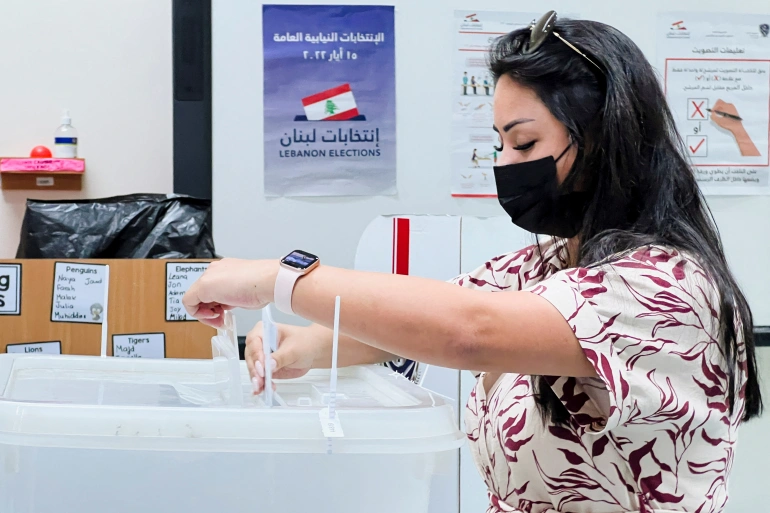BEIRUT (Parliament Politics Magazine) – Almost three years into a debilitating economic crisis that has devastated the Lebanese pound, created record inflation, and forced thousands of people to flee the nation, Lebanese expats have begun voting in the country’s parliamentary elections.
On Friday, Lebanese expats in ten countries will cast votes, including Syria, Qatar, Iraq, Saudi Arabia and Iran while the diaspora in 48 other countries will vote on Sunday.
On May 15, Lebanese citizens at home will vote.
A total of 244,442 Lebanese living abroad have registered to vote in the election, over double the number who registered to vote in the previous elections in 2018.
While several opposition parties are aiming to garner votes from the diaspora as a result of the economic crisis, other analysts believe the traditional parties of Lebanon will stay dominant following the election.
Lebanon’s delicate sectarian power-sharing system holds parliamentary elections every four years, with seats given to a wide range of sects. A Maronite Christian is elected president, a Sunni Muslim is given the premiership, and a Shia Muslim is elected parliament speaker.
Those who were living abroad were permitted to vote for the first time in 2018 under a new electoral legislation that also mandated that six more seats for the diaspora would be added to the parliament in the 2022 election.
Members of parliament, under pressure from independent political parties and expats, opposed adding those six seats, meaning foreigners will vote in the existing 128 seats.
‘This is not something Lebanon deserves.’
In the face of instability, widespread corruption, and financial mismanagement, millions of people have fled Lebanon in recent decades, bringing their skills overseas to find better chances and secure a stable future. While no exact figures exist, numerous estimates suggest that more Lebanese live overseas than in Lebanon, which has a population of 6.5 million people, including Lebanese and refugees.
However, an unsuccessful rebellion against the economic collapse, the status quo, and the disastrous 2020 Beirut Port blast drove many more people to leave the country in recent years.
Resentment is at an all-time high due to widespread corruption, financial mismanagement, and a disdain for deteriorating living conditions.
In early 2021, 35 years old software programmer Jack Demirji, left Lebanon for Sao Paulo, Brazil. He claimed that he did not want to go, but that the Beirut blast forced him to.
He was going to vote, even though he didn’t think the new election would change anything. He felt a responsibility. He would definitely not vote for traditional political parties, Demirji informed Al Jazeera.
He claims he was frustrated by anti-establishment parties’ inability to form united electoral lists to take on the ruling parties of the country after participating in mass protests in late 2019.
He believes the Lebanese people had great potential, but everyone wanted to be the leader, he remarked.
Demirji says he cares about Lebanon, but he has no plans to return after losing his savings in the bank as the value of the Lebanese pound versus the dollar has plummeted by about 90% in the last year, and dealing with debilitating power outages and fuel shortages. He claims that he will just come to see his family and friends.
When he lived in Lebanon, his main goal was to figure out where he could get electricity and where he could get fuel for my car,” he said. However, after he left Lebanon, he began focusing on himself to see how he could improve, and he began to set and achieve significant goals.
Lebanon’s diaspora of sectarian political parties has a large presence and loyal support in countries where the diaspora has moved generations ago, such as Africa, Canada, the United States and Australia.
Image via Reuters






